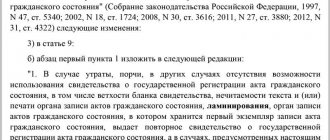What is inheritance
The definition of inheritance is contained in Part 3 of the Civil Code of the Russian Federation, according to which inheritance is considered to be the complex of property of the testator, as well as his duties and rights, which pass to the heirs as a single whole in the order of universal succession.
Therefore, the heir must understand that if the testator had obligations of a property or non-property nature (for example, debt or loan obligations), then their fulfillment also passes to the heir, along with:
- An apartment.
- Home.
- Car and other property.
Inheritance upon death of legal successors: rules, terms
The consequences for successors of people who were unable to accept the inheritance will depend on the moment of death and the presence of a will.
To consider possible situations, let us assume that citizen A is the testator, B and B1 are his legal successors, C is the heir of citizen B.
Until the death of the testator
If citizen B dies before A's death or at the same time as him and therefore does not accept his property, the following happens:
- Applicants are called upon to inherit according to the law. If A wrote a will for citizen B, and the latter was unable to accept the property due to death, then the will does not apply to C.
- The legal successors of A by right of representation are the persons specified in paragraph 2 of Art. 1142, 1143,1144 of the Civil Code of the Russian Federation: grandchildren, nephews, cousins in order of priority upon death of children, brothers or sisters, nephews and nieces.
- The period for accepting values by right of presentation is 6 months from the date of death of citizen A.
After the death of the testator
If heir B dies within 6 months from the date of death of A, without having time to accept the property due to him, then:
- Citizen C can accept A's property as a transferee. The possibility of acquiring what was bequeathed is excluded if the testator has appointed an heir. However, if the basis for subassignment is refusal of succession, recognition as unworthy and other reasons, but not the death of the heir, the value will be accepted by the transmitter.
- Citizen C accepts benefits from A only if B dies.
- The acceptance period for C is at least 3 months from the date of B’s death.
- If citizen C refuses to accept material benefits and misses the established period, the property is transferred to the legal successor - B1.
Inheritance by will and law
Civil law provides for two types of inheritance:
- According to the will.
- By law (without a will).
Legal inheritance is carried out in turns, of which the Civil Code provides for as many as 7.
Dependents who lived together with the testator, constituting the eighth line of heirs, are separately identified.
The order of heirs is determined by the degree of relationship with the testator; movable and immovable property is transferred to heirs from the same order into common shared ownership, after which the heirs can divide it in equal shares or in other shares by agreement.
If there are no heirs of the first priority , the inheritance passes to the heirs of the second priority and so on.
Identification of a potential successor
The death of a person entails the opening of an inheritance. This means that heirs can receive or “purchase” the inheritance.
Claimants by law
In the absence of a will, the property is divided between:
- The first to inherit are the closest blood relatives and relatives (spouses, parents, children of the deceased, grandchildren by right of representation).
- Second in line are brothers and sisters (their children by right of representation), grandparents.
- Third in line are uncles, aunts and their children by right of representation.
Subsequent queues are more distant relatives who acquire valuables only in the absence of close contenders.
Separately, the 8th stage is highlighted - compulsory heirs. This:
- disabled citizens who were dependent on the deceased for at least 1 year before his death and who are relatives;
- not relatives who meet the specified conditions and lived with the testator for at least 1 year before the opening of the inheritance.
Their share of the inheritance is equal to the share of the applicants called up in order of priority.
Claimants under the will
A will is an official document that clearly defines the rights and obligations of legal successors.
The heir under a will can be an individual from among relatives, friends, acquaintances, organizations and even the state.
If there is a document, the obligatory heirs will receive at least ½ of the part allocated to them by law.
Procedure for entering into inheritance after the death of the testator
The procedure for entering into inheritance after the death of the testator represents the actions of the heir to express his will regarding the acquisition of property rights and obligations of the deceased.
In general, this order looks like this:
- Applying to a notary office with a statement of intention to accept the inheritance.
- Submitting to the notary a package of documents that are necessary to obtain a certificate of inheritance. The cost of a notary's work does not have a fixed amount.
- The state duty today is 0.3% for close relatives (first and second priority heirs - children, parents, spouses) and 0.5% for other groups of heirs. The maximum amount of state duty for the first category of heirs is 100,000 rubles, and for the second - 1,000,000 rubles. The law provides for a number of benefits for paying fees, for example, a discount exists for disabled people, heirs who lived and continue to live in an apartment or house that is transferred by inheritance.
- Registration of transfer of ownership rights. This stage begins after six months from the opening of the inheritance; only from this moment the heirs have the opportunity to dispose of the inherited property.
- If the inheritance is passed on by will, then tax .
If an apartment, house, or other real estate is inherited, then to register ownership of them, the heirs should contact Rosreestr and present:
- Documents that prove their identity (passport, birth certificate).
- Certificate of right to inheritance.
After registration, the heirs will be issued a corresponding certificate.
Some features are provided for when inheriting cars and other vehicles; to complete the procedure, the heirs will need to register the car with the traffic police.
When does the transmission fail?
After the death of the applicant, disputes often arise due to ignorance of the principles of redistribution of inheritance rights. The determining factor is the ratio of the dates of death of the testator and the successor. If the last one died first, there can be no talk of transmission, since it is considered that the inheritance remains intestate, even if the person is indicated in the will. But there is an additional number of cases when the transmission mechanism cannot be used.
Missing a deadline
After the opening of the inheritance case, six months are allotted for the procedure. The period will be reduced to three months, based on the fact that there is only one applicant. After the death of the heir, you must contact a notary within this period. Otherwise, you will have to file a statement of claim. 3 years are allotted for this. This is the general limitation period under the Civil Code.
In exceptional cases, a claim is accepted later, but there must be special reasons for this. An heir who died after the opening of the inheritance leaves the property due to his descendants, but if all the deadlines are missed, the transmission does not work, it is no longer possible to use the material benefits and the claim will be left without consideration. To prevent this from happening, contact a lawyer in a timely manner and initiate the inheritance process.
People often ask what to do if the heir dies before the testator. You should immediately consult a lawyer, especially since the initial consultation on key issues is free. Describe the situation, indicate whether there is a will, remember all the circumstances. A lawyer will tell you whether it is possible to claim the property in your case. If yes, then tactics and strategy for further actions will be developed.
The key points are the timing of entry and the method. When death takes away a legal successor, relatives of the same line become applicants. These are not only people who are blood related to the deceased. A valid marriage (at the time of the events) or adoption are also sufficient grounds for receiving an inheritance. A will changes the rules of distribution, and everything is decided by the terms specified in the text.
Mandatory share
When dying, the testator leaves an inheritance to the persons specified in the will and relatives, as well as obligatory claimants. The last category includes minor children, disabled parents and dependents who support the deceased in the last year of life. Without having time to accept the obligatory share, the heir deprives his children of the opportunity to use the transmission.
Simultaneous death of testator and heir
If the day of opening of the inheritance coincides with the date of death of the heir, the transfer of valuables to the latter’s relatives is excluded. This situation is equivalent to the case when there was no successor even before the time of accession. It is considered that the estate is not willed. The relatives of the successor have no right to claim the share that would have been transferred to him by right of inheritance if his life had not been cut short so early.
The heir left a will
It is better to consider this case with an example. Relatives learned that the head of the family managed to write a will for all the property acquired during his lifetime and died. Before this, his father passed away, from whom the inheritance remained. Relatives cannot lay claim to valuables if the will states that everything must be transferred to a third party. To cancel this fact, it is necessary to obtain the annulment of the will through the court.
Features of inheritance by will
To enter into an inheritance under a will, you will need to submit documents that confirm the identity of the heir.
When inheriting under a will, not only individuals can act as heirs (family relations with the testator are not required), but also legal entities, as well as the state and subjects of the federation.
There are two types of wills:
- Open : when drawing up the text of the will, the notary, the present witnesses, the signer (signs instead of the testator, who cannot sign on his own), and the executor of the will become familiar with the text of the will.
- Closed : written by hand by the testator, handed over to the notary in a sealed envelope, no one except the testator knows about its contents or gets acquainted with it. The notary opens such a will within fifteen days from the date of transfer of the death certificate of the testator to him.
The testator can indicate his will in the will, the execution of which is entrusted to the executor (heir or one of the heirs, a third party who is not an heir). The functions of the executor are to ensure that the will is carried out correctly and to dispose of movable or immovable property that is inherited by other persons.
For example, an executor may be appointed if the heir has not reached the age of majority and has not received the required education - until this moment the executor will manage the testator’s property. Executors can also be considered persons who are authorized to execute a will by the heirs themselves (attorneys) or in cases established by law (legal representatives, guardians), all actions of the executor must be performed exclusively in favor of the heirs.
Despite the freedom of expression of the testator, there is a so-called obligatory share of the inheritance (part of the property that is due to a person, regardless of who the deceased or the law has designated as an heir). Such persons are considered:
- Minor children of the testator.
- Children who are unable to work due to health reasons.
- Disabled persons who were previously dependent on the deceased (relatives of all levels, disabled spouses who, due to health or age, are unable to work and lived with the deceased).
The size of the obligatory part is half of the share that the person should have received according to the law. For example, if the deceased made a will that deprives his wife of the right to an apartment, but she has already reached retirement age and is considered legally disabled, and there are no other first-line heirs, the spouse has the right to half of the deceased’s apartment. A person entitled to receive a compulsory share may be deprived of this right only by a court decision.
What to do if the heir died before the testator?
There are differences related to the correspondence of the moments of death of the participants in the transaction. The formation of a list of successors depends on this. If the heirs under the will die before they have time to accept the inheritance, the legislation considers them as the accepting party, and their relatives are already given rights. In this case, the order of inheritance is taken into account, depending on the degree of family proximity.
If the heirs under a will die before the testators, the situation is complicated by the fact that a detailed interpretation of the will of the deceased is required. Perhaps he foresaw that things could go this way and left corresponding orders. After all, children do not always accept inheritance. It happens that a father and mother have to do this if they are still alive and the child has died. There are also recommendations in the laws for this case.
Conditions for the transfer of property under Article 1156 of the Civil Code of the Russian Federation
It concerns cases where the inheritance cannot be transferred to a successor due to his sudden death. In particular, it is said that if the heirs die without having time to accept the inheritance after the testator, the values are distributed among his (successor's) relatives. In this case, there are 2 ways:
- When, within the framework of an opened case, it turns out that there is an expression of will that transfers the inheritance to a third party, the latter becomes the successor.
- If the will of the deceased has not been properly formalized, the relatives of the deceased are called upon to inherit according to the established order.
However, the deadlines may be adjusted. When the remaining time until the end of the proceedings is less than three months, the inheritance case is extended. A three-month period is the minimum.
If an heir assigned to the number of obligatory heirs dies, his share is not transferred according to the rules of transmission in accordance with Art. 1156 of the Civil Code of the Russian Federation.
The successor died after the testator
The day of initiation of inheritance proceedings is considered the date of death of the owner. Even if the notary accepts the application later, the countdown begins from the day written on the death certificate. If doctors were not able to ascertain the moment of the last breath, a judicial act of declaring the person dead is used. In practice, 2 options are used:
- They start from the date of official death, recognized by the court.
- The date of publication of the act itself is used if it is impossible to establish the true last seconds of life.
In any case, the successor receives the right to inherit. But now the problem is that the heir did not have time to do this. In this case, it can be considered that the rights to inheritance are transferred if a certificate is issued.
The heir did not have time to take possession
What is meant here is that the certificate of inheritance has already been received, but the valuables have not been re-registered. In such circumstances, the property is distributed among the heirs of the recipient despite the fact that the procedure is not completed. The following situations are distinguished:
- The heirs according to law enter into the inheritance. These are the primary legal successors from among relatives.
- The heirs specified in the will are called upon to inherit. The rule works if all property is transferred by will.
To enter into an inheritance, you must contact a notary. In this case we are talking about hereditary transmission. The legislation states that the standard procedure for re-registration of inheritance is applied.
The death of the successor occurred within six months from the date of opening of the inheritance
It is necessary to distinguish between 3 time periods:
- Death occurred before the inheritance was revealed. If the heirs die before the testators, there are no problems. The successors are the relatives of the deceased or the persons specified in the will. Even if the deceased is among them, the share will be distributed among living applicants.
- The rights to the inheritance were not re-registered, and the inheritance case was not completed, but there was no heir. It is necessary to wait for the results of the proceedings, and if the deceased was a valid legal heir, his share is transferred to his descendants. The exception is the presence of a will for all acquired property.
- The inheritance proceedings have been completed. In this case, the phrase “did not have time to join” means that the new owner did not re-register the inheritance in his name. Under such circumstances, nothing prevents his heirs from initiating a new process and registering the property in their own name.
If the heirs under the will died not before the testators, but after them, the legal process is carried out according to the rules of hereditary transmission. This is a special term introduced into jurisprudence for such cases.
Refusal of inheritance
The heirs may, within the period specified for accepting the inheritance, refuse it (even if the inheritance has already been accepted by them).
To do this, you should submit an application to a notary to renounce the inheritance at the place where it was opened; it is not necessary to indicate in the application the persons in whose favor the refusal is being made.
The law prohibits refusing an inheritance with reservations or under conditions (for example, if the heir wants to refuse one part of the property and accept the other). The renunciation of the inheritance cannot subsequently be changed or taken back. Heirs may also refuse a will, but such a refusal cannot be made with reservations, in favor of other persons or under conditions.
Sub-appointment of heir
This term means that testators, not wanting the relatives of the successor to use the acquired property in the event of the latter’s death, have the right to appoint a reserve beneficiary. Then, under such circumstances, the transmission does not work, since the will of the owner presupposes the entry into ownership of another, subordinate person. The exception is the situation when the person who accepts the inheritance is found unworthy.
A complete list of reasons serving as the basis for sub-appointment:
- Premature death of the primary successor.
- Recognizing him as an unworthy heir.
- The case when he officially renounces the inheritance.
- Deprivation of the right to inherit for other legal reasons.
The peculiarity of sub-assignment is that not everyone can be a beneficiary. This must be a capable person. Incapacity due to being a minor is not a limitation. The interests of the designated person are represented by parents or guardians. But, if the prohibition is associated with unworthy behavior, the subassignment is canceled, and the rights of the deceased heir to the inheritance are transferred to the latter’s relatives.
Subjects may be:
- Any individual, regardless of gender.
- Legal entities conducting commercial activities (enterprises, corporations).
- Non-profit structures (charitable foundations, public associations).
- Medical institutions (hospitals, clinics, rehabilitation centers).
- Government structures, institutions, bodies, organizations, funds.
- Research institutes (private and public).
The legislation of some countries allows you to leave an inheritance for pets. In our country, an animal is not included in the list of possible heirs. An alternative is an order requiring the care of the animal.
In case of death of the successor
It is permissible to indicate any subject from the list as a sub-designate. It is important to determine in the text the ratio of the moments of death (simultaneous, sequential). It is necessary that the applicant is legally capable and not found unworthy. The number of beneficiaries is not limited by law. It is also allowed to enter specific entry conditions that do not contradict the Civil Code of the Russian Federation.
If the recipient is found unworthy
This situation indicates the transfer of rights to a designated person, if such a condition is contained in the text of the expression of will, certified by a notary. Recognition presupposes obtaining the appropriate court order. The grounds are criminal activity or actions aimed at causing harm to the health of the testator or competitors.
Reasons for going to court
There are several reasons why heirs or other persons may need to contact the judicial authorities to register an inheritance:
- Division of shares of an apartment, house or other property between heirs.
- The legal deadlines for entering into an inheritance have passed, but the actual entry into an inheritance has occurred - the heir maintains the testator’s property in proper condition, lives in his apartment or house, pays the bills and debts of the deceased. It is necessary to file a claim in court to recognize the right of ownership of the inherited property.
- The deadline for entering into inheritance was missed by the heir for a good reason (for example, illness, business trip, the heir did not know about the death of the testator). In such a case, it is necessary to file a claim in court to restore the missed deadlines for accepting the inheritance.
- The husband or wife of the deceased may demand in court to determine their share of the inherited property acquired jointly by the spouses during the marriage.
- Applying to the court with a statement of claim to recognize the fact and period of being dependent on the testator in order to recognize a person who has been dependent for more than one year as an heir.
- Applying to the court with a statement of claim to recognize the will as valid or invalid in case of doubt about the authenticity of the testator’s signature or the execution of the will with errors.
What and when is it better to choose?
Leaving a will is a purely voluntary decision. Inheritance is the right of every citizen, and no one has the right to force someone to make a will, or to refuse it altogether. Therefore, the choice of how to dispose of one’s property or not to dispose of it at all, relying on the general law, is left to the consideration of the property owner.
A will is useful if the testator himself wants to decide in what shares to divide his property between the heirs, or if he wants to deprive any of them of rights altogether, or to provide all the property to one person.
Inheritance law is the last opportunity for heirs to assume their rights in the absence of a will.
Procedure and design schemes after death
One of the spouses
During the inheritance of property, the spouse is legally entitled to half of the jointly acquired property. It is determined even regardless of whether the specified objects were registered in the name of the deceased or not. Additionally, the heir-spouse is entitled to an equal share of the remaining property along with the remaining legal successors.
Exceptions are possible only if there is a will or marriage contract, which clearly states what property belongs to each of the spouses.
You will find all the details about the distribution and size of shares when entering into an inheritance after the death of a spouse in a separate publication.
One of the parents
According to Article 1149 of the Civil Code of the Russian Federation, minor children have a priority right to inherit the property of deceased parents and are exempt from paying state fees.
They also have the right to refuse it, but only with the written consent of the guardianship and trusteeship authorities.
If by the time the inheritance case is opened, the child has already reached the age of majority, then he inherits the property of his parents on an equal basis with all first-degree relatives.
Son or daughter
After the death of a child, the parents share his property on an equal basis with other first-degree relatives. They have the right to a compulsory share only if they themselves are disabled (Article 1149 of the Civil Code of the Russian Federation).
Certificate – what is it, how to draw it up correctly?
Important. A certificate of inheritance by law is a document that is issued by a notary after submitting the appropriate application within a total period of six months after the opening of an inheritance case (Article 1162 of the Civil Code of the Russian Federation). It is needed to officially confirm the heir’s rights to manage and own the newly acquired property.
The certificate on behalf of the notary informs about the identity of the heir and his legal rights to the property that will be transferred by law. It states:
- passport details of the heir and testator;
- residential address of the first;
- information is given about the property that is due to him;
- details of documents that can confirm the legality of property rights;
- its estimated value is given.
Below you can see what a certificate of legal inheritance looks like:





